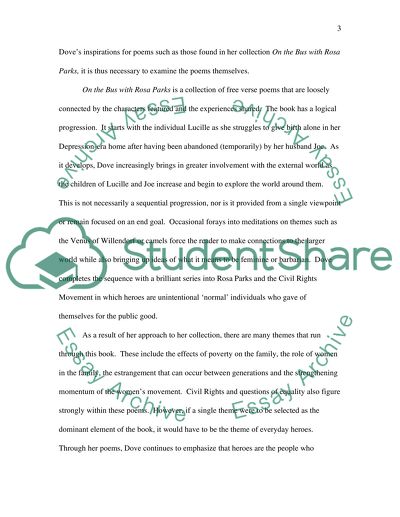Cite this document
(On the Bus with Rosa Parks Essay Example | Topics and Well Written Essays - 2250 words, n.d.)
On the Bus with Rosa Parks Essay Example | Topics and Well Written Essays - 2250 words. Retrieved from https://studentshare.org/literature/1549856-on-the-bus-with-rosa-parks-research-paper
On the Bus with Rosa Parks Essay Example | Topics and Well Written Essays - 2250 words. Retrieved from https://studentshare.org/literature/1549856-on-the-bus-with-rosa-parks-research-paper
(On the Bus With Rosa Parks Essay Example | Topics and Well Written Essays - 2250 Words)
On the Bus With Rosa Parks Essay Example | Topics and Well Written Essays - 2250 Words. https://studentshare.org/literature/1549856-on-the-bus-with-rosa-parks-research-paper.
On the Bus With Rosa Parks Essay Example | Topics and Well Written Essays - 2250 Words. https://studentshare.org/literature/1549856-on-the-bus-with-rosa-parks-research-paper.
“On the Bus With Rosa Parks Essay Example | Topics and Well Written Essays - 2250 Words”. https://studentshare.org/literature/1549856-on-the-bus-with-rosa-parks-research-paper.


